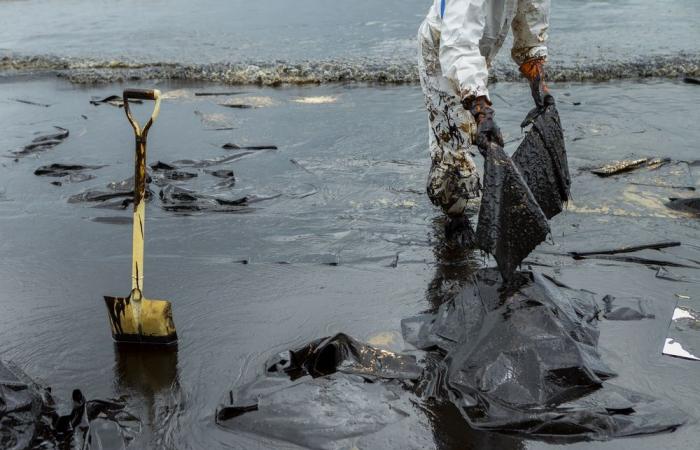The oil spill that occurred on December 15, 2024 in the Kerch Strait, on the border between Russia and Crimea, highlights the fragilities of current energy infrastructure. Two tankers, carrying several thousand tonnes of fuel oil, sank under the influence of a violent storm. This event, beyond the ecological damage it causes, raises crucial questions about the security and management of energy resources in the Black Sea.
An energy disaster in the heart of Crimea
The ships Volgoneft-212 et Volgoneft-239 carried approximately 9,200 tonnes of fuel oila key resource for the region's energy supply. During the sinking, near 40% of this cargo spilled into the sea, contaminating the surrounding water and soil.
The disaster highlights the risks inherent in the maritime transport of hydrocarbons in a strategic area, but often neglected in terms of energy security. The Black Sea, crossed by numerous oil routes, is a vital crossroads for Russia and its exports. Yet this incident demonstrates the structural flaws in ship maintenance and anticipation of extreme weather conditions.
Energy and environmental repercussions
The impact of this oil spill is not limited to the environment. It also affects the region's energy economy:
- Lost resources : Environ 3,680 tonnes of fuel oil are irretrievably lost, affecting local energy supplies. This quantity, although small on a national scale, represents a valuable resource for local industries.
- Logistical disruptions : Maritime routes in the Kerch Strait, essential for the transport of hydrocarbons, are temporarily blocked. This interruption disrupts Russian exports and exacerbates geopolitical tensions in the region.
- Financial consequences : The cost of clean-up operations, estimated at several million euros, is straining budgets already weakened by international economic sanctions.
Crisis management criticized
Faced with this incident, the Russian authorities have made efforts to limit the damage, but their management has attracted criticism:
- Lack of anticipation : The vessels involved were old and poorly maintained, reflecting a lack of investment in critical energy infrastructure.
- Insufficient cleaning : Yes 73,000 tonnes of contaminated sand were removed, the total volume of polluted soil could reach 200,000 tonnesaccording to experts.
- Lack of international cooperation : Despite the urgency of the situation, no foreign expertise has been requested to speed up the cleanup or strengthen safety standards.
“This event is the direct result of years of underinvestment in maritime security”says a fossil fuel specialist interviewed by a local magazine.
| Aspect | Numbers |
|---|---|
| Quantity of fuel oil spilled | 3,680 tonnes |
| Polluted soils | 200,000 tonnes |
| Sand cleaned | 73,000 tonnes |
| Cost of operations | Several million euros |
A major geopolitical and energy issue
The disaster occurs in a tense geopolitical context. Crimea, annexed by Russia in 2014, plays a key role in Moscow's energy ambitions. However, aging infrastructure and governance gaps hamper the secure exploitation of resources.
The accident also raises questions about the energy transition. As the world seeks to reduce its dependence on fossil fuels, this event serves as a reminder that these energy sources remain dominant, with considerable risks for the environment and populations.
A reaction? Leave a comment
Did you like this article? Subscribe to our free newsletter for engaging articles, exclusive content and the latest news.






